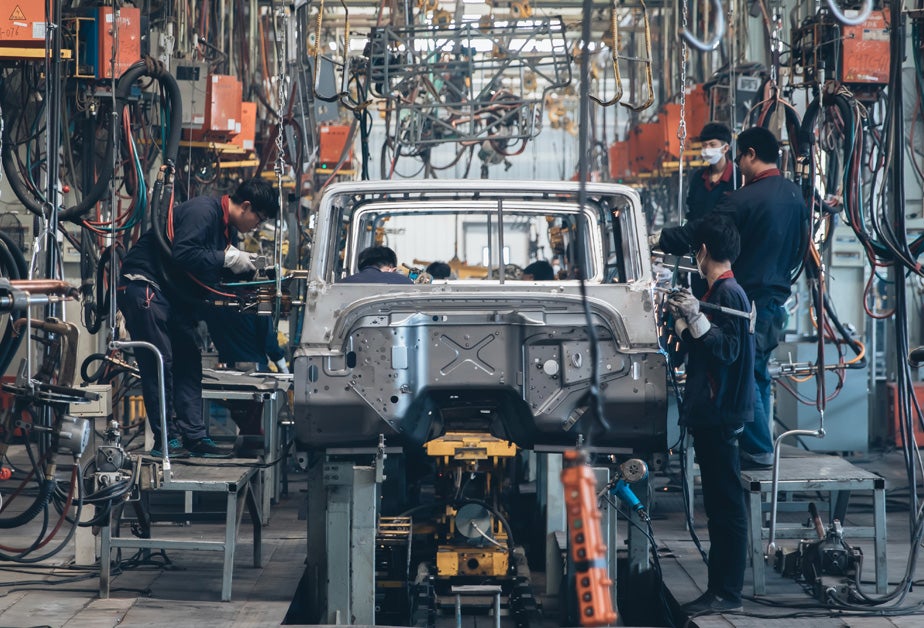The U.S. Senate Committee on Finance has intensified its ongoing investigation into forced labor risks in automotive supply chains. In December 2022, Chair Ron Wyden reached out to eight major automotive manufacturers asking for insights into how they ensure their supply chains are free from forced labor. Now, after those manufacturers “failed to provide specific details,” he is digging deeper into those automotive supply chains to ask tier one suppliers if they have processes to detect and eliminate forced labor risks. Automotive supply chains are particularly at risk, as metals, batteries, wiring, and wheels have all been found to have connections back to Chinese companies with operations in the Xinjiang Uygur Autonomous Region (XUAR).
My analysis of the current Senate inquiry is that there are strong indicators that U.S. Customs and Border Protection (CBP) will soon start cracking down on automotive imports into the U.S. market. Automotive manufacturers and their suppliers should plan now to increase due diligence efforts and prepare for supply chain disruptions.
Will Codes of Conduct Be Enough?
Chair Wyden noted that the primary protection used by automotive original equipment manufacturers (OEMs) is to require that tier one suppliers follow a code of conduct. When the Senate Committee on Finance originally asked manufacturers for more information on their forced labor compliance processes, they “often claim[ed] that suppliers had responsibility for ensuring that their supply chains are free of forced labor” (my emphasis).
However, it’s become clear that a code of conduct is not enough to avoid forced labor risks and outsource due diligence responsibility in the future. According to the committee, the investigation has revealed serious questions about tier one suppliers’ ability to ensure sub-suppliers do not use forced labor. Chair Wydan also reiterated that the difficulty of complying with the U.S. Uyghur Forced Labor Prevention Act (UFLPA) is not an excuse for non-compliance: “I recognize that tier 1 suppliers rely on complex supply chains to source thousands of parts from across the world. However, this complexity cannot cause the United States to compromise its fundamental commitment to upholding human rights and U.S. law.”
While it’s important to have suppliers adhere to a code of conduct as part of your compliance program, this will not be enough should the CBP detain your shipments. At a minimum, you should be able to demonstrate that no part of the detained goods has any connection to the XUAR, either through their inputs or through connections to entities on the UFLPA Entity List. This means, according to the CBP, that you must directly engage your suppliers in a robust risk assessment and also have some form of process in place to continuously monitor information on possible risk exposure. Assent’s UFLPA compliance solution helps you detect hidden forced labor risks in your supply chain and our Enhanced Supplier Screening solution proactively monitors suppliers against sanctioned party lists. Having access to expert support is more urgent than ever, as reports of Chinese companies faking labor rights compliance are now trickling in.
Auto Manufacturers Need to Act Now & Engage Suppliers More
Eliminating forced labor from U.S. supply chains is a collaborative effort: Auto manufacturers and their suppliers will need to work closely to share data and resources for due diligence. In particular, they will want to gain deeper visibility into the human rights impacts of the parts sourced from their global supply chains.
Because collecting this due diligence data can take months, especially for supply chains as complex as those in the automotive industry, manufacturers need to act now. Automotive manufacturers have the benefit of seeing the impact of UFLPA enforcement on the solar panel industry and should take a proactive approach to due diligence to avoid suffering the same major delays at the border.
Supplier engagement will be fundamental, for both OEMs and tier one suppliers. UFLPA compliance requires conducting due diligence across parts and raw materials, and for that you need a reliable flow of information up the supply chain. The best way for manufacturers to achieve this is to provide a platform for suppliers to share data and educate suppliers about UFLPA compliance. Assent’s supply chain sustainability management solution makes it easy for your suppliers to submit human rights and compliance data through our secure Supplier Portal, improving supplier engagement and data quality.
Proactive Due Diligence Is the Best Policy: Get Started
A proactive supply chain due diligence program is essential to staying ahead of rising UFLPA enforcement. If you need to replace any suppliers due to forced labor risks, now is the time to find out. Like we saw with the solar panel industry, I expect serious disruptions to take place as OEMs and tier ones race to secure sustainable parts and materials from reputable suppliers.
Learn how UFLPA enforcement is on the rise and what that means for all manufacturers: Watch the on-demand webinar, 2023 UFLPA Update: Enforcement Is on the Rise — Can You Risk Product Seizures?
It covers:
- How the CBP approaches forced labor investigations
- How to conduct due diligence that holds up to the new standard of scrutiny
- Uncovering supplier connections to sanctioned parties
Assent is your partner in UFLPA compliance, with a solution for collecting deeper due diligence data, engaging suppliers to improve response rates, and expert services to identify forced labor red flags. You can see our solution for yourself by scheduling a demo.









